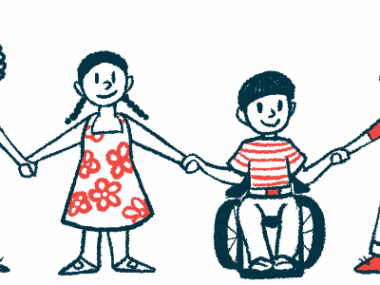CF care may be poorer for children with mental health issues
Lower treatment use, more hospital stays in those with signs of ADHD or ODD
Written by |

Mental health issues — namely, attention-deficit/hyperactivity disorder (ADHD) and oppositional defiant disorder (ODD) — in children with cystic fibrosis (CF) may be associated with a poorer adherence to treatments, more hospitalizations, and higher use of antibiotics, according to a recent report.
“These initial findings suggest that mental health screening efforts in pediatric CF clinics may need to include ADHD and ODD symptoms,” its scientists wrote.
“Associations between symptoms of ADHD/ODD and health outcomes in youth with cystic fibrosis” was published as a letter in the journal Pediatric Pulmonology.
Mental health disorders common to pediatric CF patients rarely studied
CF is caused by mutations in the CFTR gene that codes for the CFTR protein, leading to the production of abnormally thick and sticky mucus. Disease treatments — which range from antibiotics to CFTR modulators that address the disease’s underlying cause — help to ease CF symptoms, slow it progression, and improve patients’ quality of life.
Recent research has focused on understanding how mental health, mainly depression and anxiety, affect treatment adherence and health outcomes in people with CF. But mental health concerns more common to children — namely ADHD, characterized by difficulties with sustained attention and/or hyperactive and impulsive behavior; and ODD, defined by resistance to authority, refusal to obey instructions, and frequent irritability or outbursts — have received little attention.
Where work exists, previous studies suggest a link between ADHD and poorer lung function and quality of life, while case studies note that ODD could affect treatment adherence and the quality of medical appointments.
Researchers in the U.S. looked into possible associations between ADHD and ODD symptoms, treatment adherence, and clinical outcomes in 22 children with CF, ages 6 to 15, being treated at a single pediatric CF center in the country’s southeast. Most children were male (59.1%) and white (81.8%).
Their goal was to determine if more severe mental health issues resulted in lower treatment adherence, more frequent hospitalizations and antibiotic usage, and poorer lung function.
At baseline (study start), symptoms of inattention, hyperactivity/impulsivity, and oppositional-defiant behavior were evaluated using a parent-reported version of the Vanderbilt ADHD Diagnostic Rating Scale. Ratings are given on a four-point scale ranging from “never” to “very often,” with symptoms considered clinically significant if marked as “often” or “very often.”
Caregivers also were asked to rate their children’s adherence to daily CF care, including airway clearance therapies and dietary management.
Results showed a clinically significant mean of 3.14 for inattention symptoms and 2.5 for hyperactivity/impulsive symptoms, corresponding to ADHD. Fewer clinically significant ODD symptoms were reported, with a mean of 1.77.
Adherence to airway clearance treatments significantly correlated with the symptoms of ADHD and ODD, with more symptoms associated with poorer adherence.
No significant links were seen between the degree of children’s symptoms and their dietary management.
Possibility of ADHD and ODD symptoms affecting pediatric CF care
To evaluate health outcomes, the researchers analyzed the frequency of CF-related hospital admissions and antibiotic courses for infections. The children also were evaluated annually for changes in lung function and body mass index (BMI), a measure of body fat.
High-magnitude correlations were seen between ADHD/ODD symptoms and the number of hospitalizations, meaning that a higher number of symptoms in each category correlated with more hospital admissions. Likewise, more symptoms associated with more prescribed antibiotics.
There were no significant correlations with lung function or with BMI.
“Symptoms of ADHD and ODD may interfere with pediatric CF management,” the researchers concluded. “Taking initial steps to screen for ADHD/ODD symptoms and learn about ways in which they might impact CF care may inform the development of screening protocols in the future.”
They recommended further studies in larger and more diverse groups of young CF patients to either “confirm or refute” their findings.







